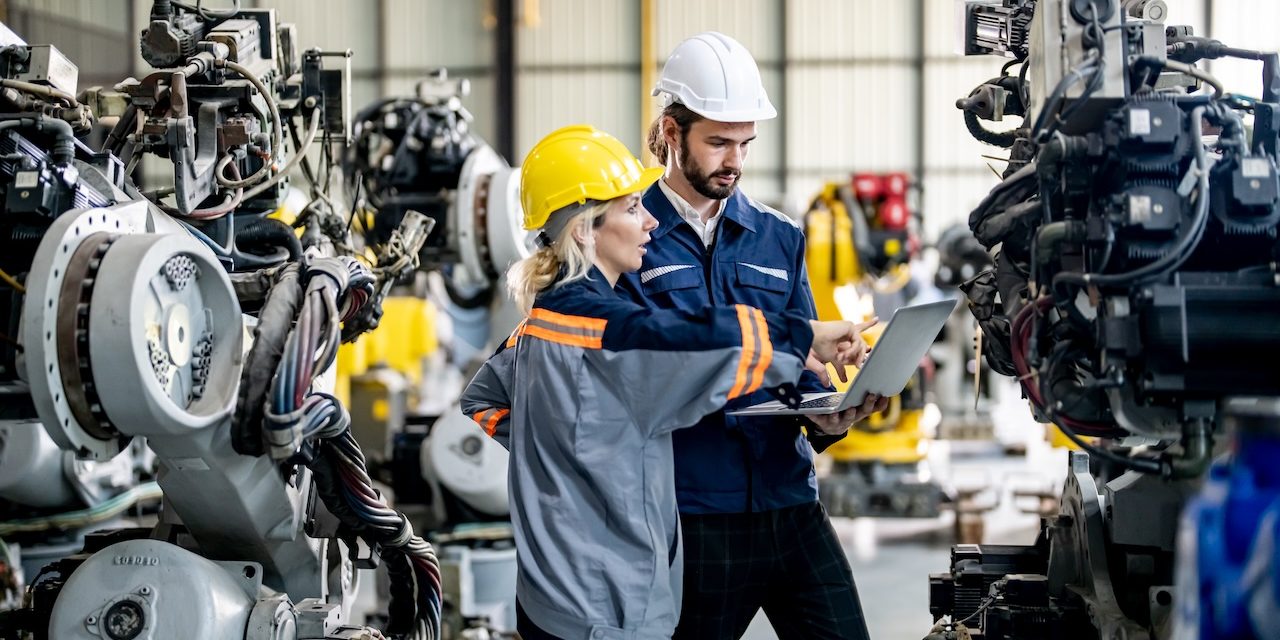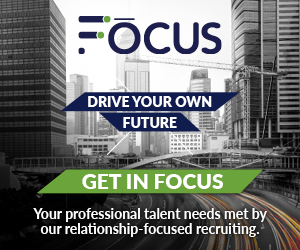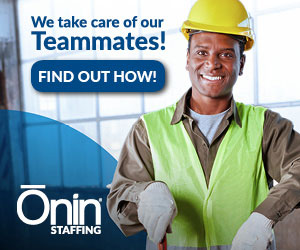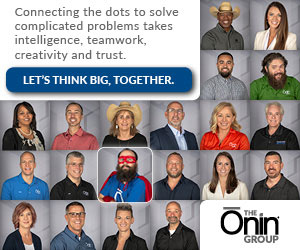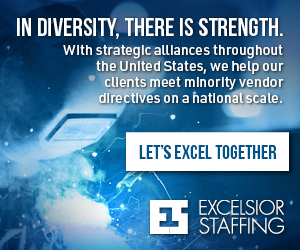Innovation is essential in the manufacturing industry. Continuously evolving and adapting to technological changes and market trends helps organizations stay competitive.
Talent acquisition is required for manufacturing employers to attract, develop, and retain the best employees. Long-term retention drives innovation and business success.
Increasing digitalization, automation, and sustainability within manufacturing organizations requires staffing flexibility. Providing experienced talent to support new technologies and processes helps scale the workforce up or down, fill skill gaps, and strengthen innovation.
Partnering with a manufacturing staffing agency helps companies remain agile, competitive, and resilient. Accessing specialized talent, flexible workforce solutions, and hiring expertise helps manufacturers navigate trends and overcome challenges.
Linking Manufacturing Staffing and Innovation
Manufacturing innovation requires fresh ideas and perspectives. Blending relevant skills and experience enhances product design, production processes, and operational efficiency.
Manufacturing leaders require comprehensive staffing strategies with the following elements to drive innovation:
- Identifying the skills and competencies essential for organizational growth, such as advanced manufacturing techniques, automation, and data analytics.
- Leveraging technology to streamline recruitment, such as AI-based tools for reviewing resumes, diversifying the talent pool, and shortlisting candidates.
- Creating partnerships with local educational institutions, internships, and apprenticeships to attract emerging talent and develop a skilled worker pipeline.
- Working with a manufacturing staffing agency to access skilled workers on demand.
Building a Future-Focused Manufacturing Workforce
Keeping pace with manufacturing innovation requires a skilled, adaptable workforce. Therefore, continuous learning and development should be part of the organization’s talent strategy:
- Employees should engage in workshops and training programs to expand their skill sets.
- Continuous skill development enhances employee capabilities and fosters a culture of innovation.
- Supporting career development strengthens employee retention.
- A well-trained workforce strengthens innovation and the company’s competitive edge.
Advanced manufacturing technologies require a workforce able to harness their potential. As a result, employees must have relevant technical skills and be comfortable working alongside robots.
A manufacturing organization that aligns its workforce with the latest technologies is positioned for innovation. Employers can take the following steps to find skilled employees:
- Identify the organization’s technological needs.
- Offer employee training to bridge the skill gaps.
- Seek candidates with relevant requirements.
- Work with a manufacturing staffing agency to source talent experienced in AI, robotics, and other relevant fields.
Overcoming Challenges in Manufacturing Staffing
The following solutions to common manufacturing recruitment challenges support innovation:
- Negative perceptions of manufacturing careers: Launch awareness campaigns emphasizing technology, innovation, and growth potential within the industry. Share success stories of employees who build rewarding careers.
- Aging workforce: Implement mentorship programs for experienced employees to share institutional knowledge with less experienced employees.
- Shrinking talent pool: Diversify sourcing efforts to reach a broader audience. Build partnerships with local high schools, technical schools, trade schools, community colleges, and universities to promote manufacturing careers. Work with a manufacturing staffing agency to source vetted talent.
- Skills shortages: Implement targeted training programs for upskilling and reskilling. Collaborate with local schools and offer apprenticeships to provide education and hands-on experience. Partner with an experienced manufacturing staffing agency to access skilled candidates.
Evolution of Manufacturing Staffing
The latest technologies impact how manufacturing organizations meet changing staffing demands and optimize operations:
- Adapting to changing demographics: Manufacturing employers can emphasize technology-driven roles, career growth opportunities, and sustainability initiatives to attract younger generations as older employees retire.
- Focusing on employee well-being: Manufacturing organizations should prioritize employee safety, health, and job satisfaction because of the physically demanding work. These initiatives might include providing ergonomic improvements, offering wellness programs, and encouraging a healthy work-life structure.
- Embracing automation and robotics: Along with increasing efficiency and productivity, automation and robotics require employees with strong digital literacy to operate, maintain, and troubleshoot the systems.
- Shifting toward specialized skills: Advancements in automation and manufacturing processes require employees with expertise in AI, robotics, data analytics, and other emerging technologies. As a result, more employers prioritize upskilling and reskilling to meet changing role requirements.
- Leveraging data-based hiring: Data analytics help identify trends, predict staffing needs, and optimize workforce allocation. Partnering with a manufacturing staffing agency enhances data-based decision-making.
- Increasing flexible work arrangements: Temporary and temp-to-hire roles help manufacturing employers quickly adapt to market fluctuations, scale operations, and access specialized skills on demand. Many roles offer remote or hybrid options to broaden the talent pool.
Rapid Transformation in Manufacturing Staffing
The following factors contribute to rapid transformation within the manufacturing industry:
- Digital transformation
- Smart manufacturing
- AI
- Automation
- Internet of Things (IoT)
- Robotics
Along with emerging technologies, many manufacturers desire the following to adapt to fluctuating business demands:
- Flexible workforce models
- Enhanced supply chain resilience
- Sustainable practices
Although investing in emerging technologies optimizes production and boosts efficiency, many manufacturing organizations face ongoing skills shortages for roles requiring advanced technical expertise. Staffing agencies providing temporary and temp-to-hire services can help reach these objectives in the following ways:
- Bridging temporary production gaps due to changing manufacturing processes
- Scaling up or down while undergoing major process-based changes
- Sourcing and training vetted candidates to meet role requirements
Benefits of a Manufacturing Staffing Agency Partnership
Partnering with a manufacturing staffing agency provides many employer benefits:
- Accelerated digital transformation: Sourcing skilled workers with experience implementing and managing the latest tools and technologies, such as smart sensors, digital twins, and data analytics platforms, helps manufacturing organizations keep pace with technological advancements without overburdening Human Resources.
- Bridged skills gaps: On-demand access to vast networks of specialized talent, including workers with experience in AI, automation, robotics, and advanced manufacturing systems, quickly fills roles, minimizes downtime, and supports operational continuity.
- Enhanced workforce flexibility: Temporary and temp-to-hire roles offer flexible staffing solutions for scaling the workforce based on production needs to manage seasonal demands, large-scale projects, and product launches.
- Improved staffing efficiency and quality: Industry expertise, established talent networks, and data-based hiring reduce time-to-fill, improve candidate quality, and elevate retention.
- Supported upskilling and reskilling initiatives: Identifying qualified talent and onboarding new hires support workforce development aligned with evolving technology, process requirements, and business goals.
- Reduced hiring risks: Thorough pre-screening and assessments ensure talent meets the role requirements, reducing onboarding and training needs and enhancing workforce integration.
You don’t need more bodies. You need a workforce system that can flex, scale, and hold.
Let’s future-proof your operation with the right plan, not just a faster fill.
Discover How to Build it Right
Sources:
- https://theleegroup.com/the-evolution-of-staffing-practices-in-industrial-manufacturing-trends-and-insights/
- https://mau.com/how-talent-drives-innovation-in-manufacturing/
- https://northeast.newschannelnebraska.com/story/52758487/staffing-and-temp-agencies-are-key-to-navigating-manufacturings-rapid-transformation

